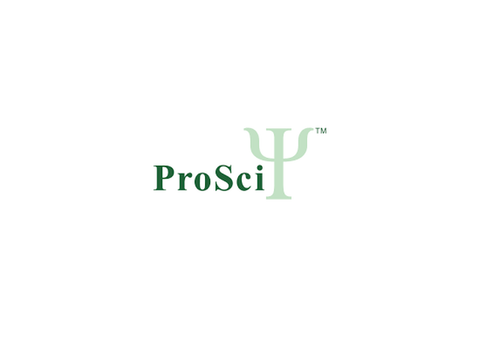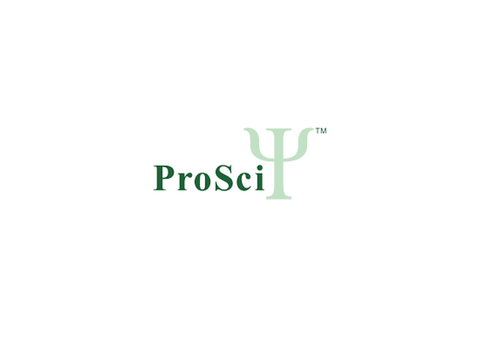Product Description
PDCD10 Antibody, KO Validated | 16-032 | ProSci
Host: Rabbit
Reactivity: Human, Mouse
Homology: N/A
Immunogen: Recombinant fusion protein containing a sequence corresponding to amino acids 1-212 of human PDCD10 (NP_009148.2) .
Research Area: Apoptosis, Cell Cycle, Neuroscience, Signal Transduction
Tested Application: WB, IF
Application: WB: 1:200 - 1:2000
IF: 1:50 - 1:200
Specificiy: N/A
Positive Control 1: A-431
Positive Control 2: HepG2
Positive Control 3: Jurkat
Positive Control 4: MCF7
Positive Control 5: Mouse thymus
Positive Control 6: Mouse brain
Molecular Weight: Observed: 26kDa
Validation: Antibody is Knockout validated.
Isoform: N/A
Purification: Affinity purification
Clonality: Polyclonal
Clone: N/A
Isotype: IgG
Conjugate: Unconjugated
Physical State: Liquid
Buffer: PBS with 0.02% sodium azide, 50% glycerol, pH7.3.
Concentration: N/A
Storage Condition: Store at -20˚C. Avoid freeze / thaw cycles.
Alternate Name: Programmed cell death protein 10, Cerebral cavernous malformations 3 protein, TF-1 cell apoptosis-related protein 15, PDCD10, CCM3, TFAR15
User Note: Optimal dilutions for each application to be determined by the researcher.
BACKGROUND: This gene encodes an evolutionarily conserved protein associated with cell apoptosis. The protein interacts with the serine/threonine protein kinase MST4 to modulate the extracellular signal-regulated kinase (ERK) pathway. It also interacts with and is phosphoryated by serine/threonine kinase 25, and is thought to function in a signaling pathway essential for vascular developent. Mutations in this gene are one cause of cerebral cavernous malformations, which are vascular malformations that cause seizures and cerebral hemorrhages. Multiple alternatively spliced variants, encoding the same protein, have been identified.
 Euro
Euro
 USD
USD
 British Pound
British Pound
 NULL
NULL

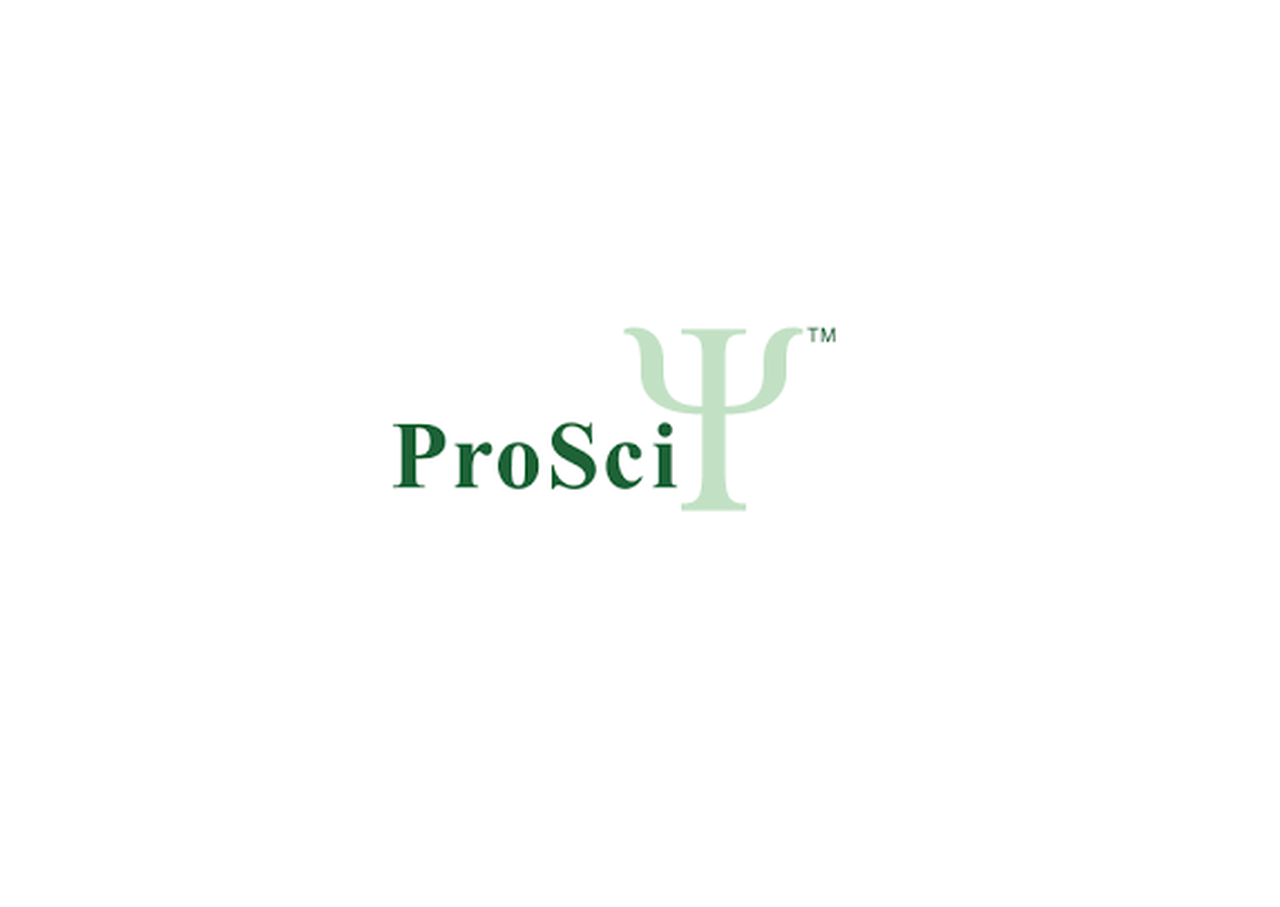
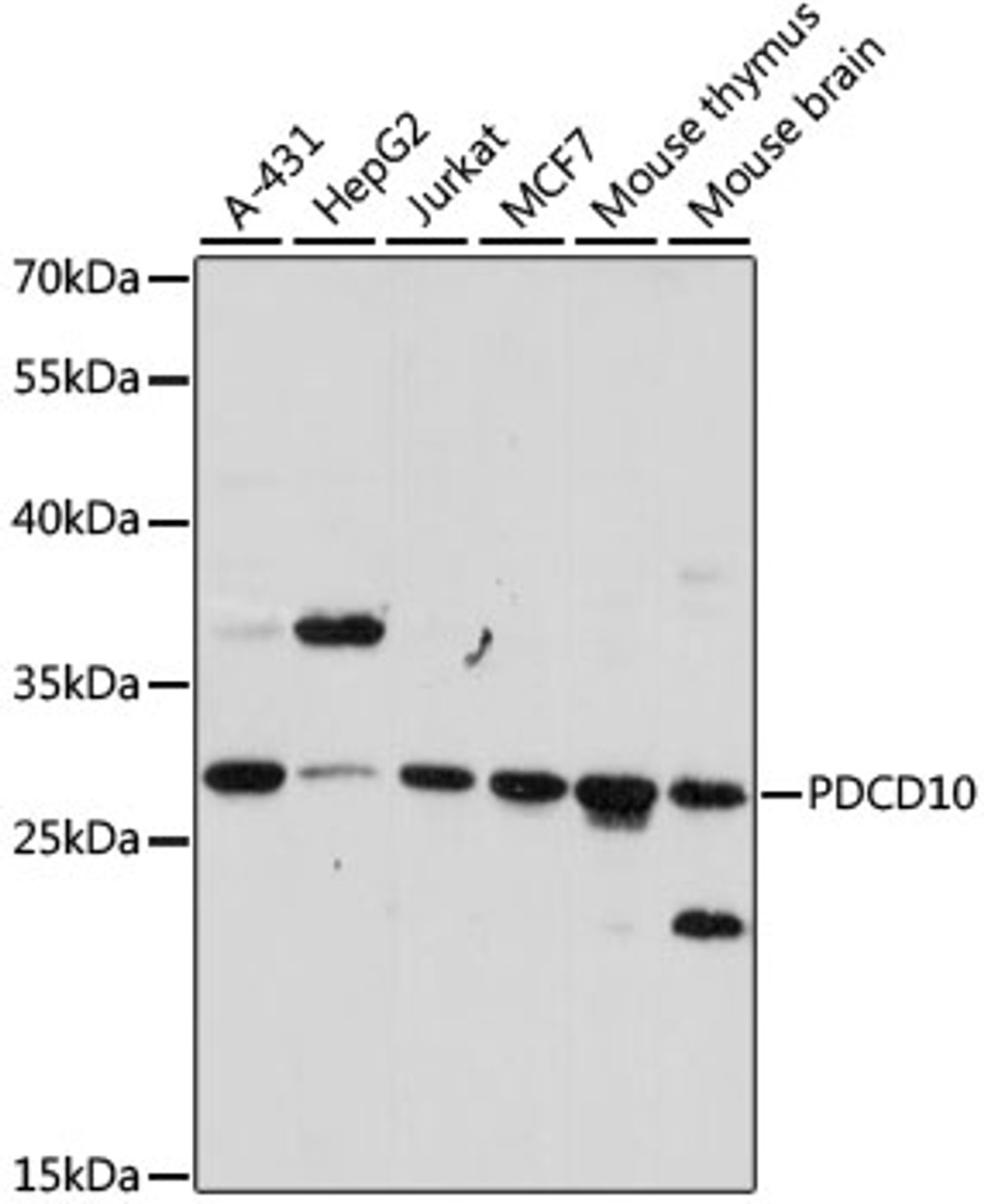
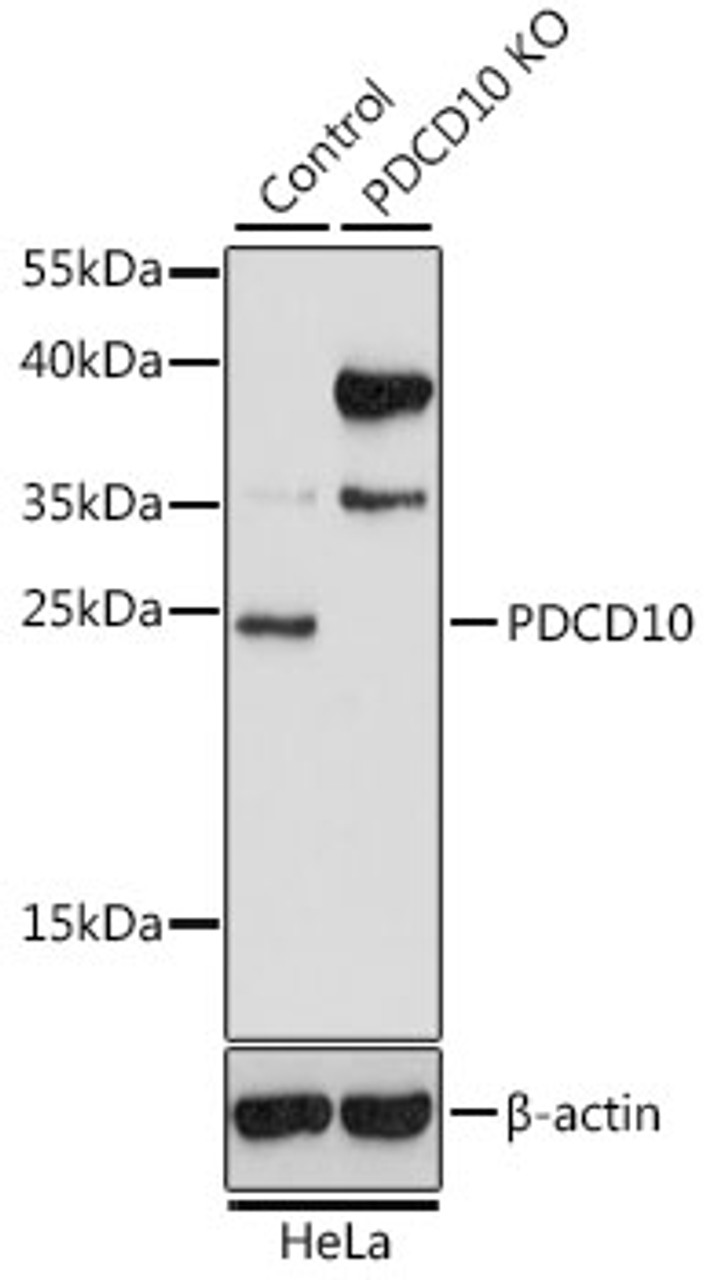




![[KO Validated] PDCD10 Polyclonal Antibody [KO Validated] PDCD10 Polyclonal Antibody](https://cdn11.bigcommerce.com/s-452hpg8iuh/images/stencil/500x659/products/295473/455610/sab-signalway-antibody__92073.1641690747__48618.1641691412.gif?c=2)
![[KO Validated] PDCD10 Rabbit pAb [KO Validated] PDCD10 Rabbit pAb](https://cdn11.bigcommerce.com/s-452hpg8iuh/images/stencil/500x659/products/396272/574745/unnamed-776x1024__91681.1646254488__92229.1646256048__48862.1646652227.png?c=2)

